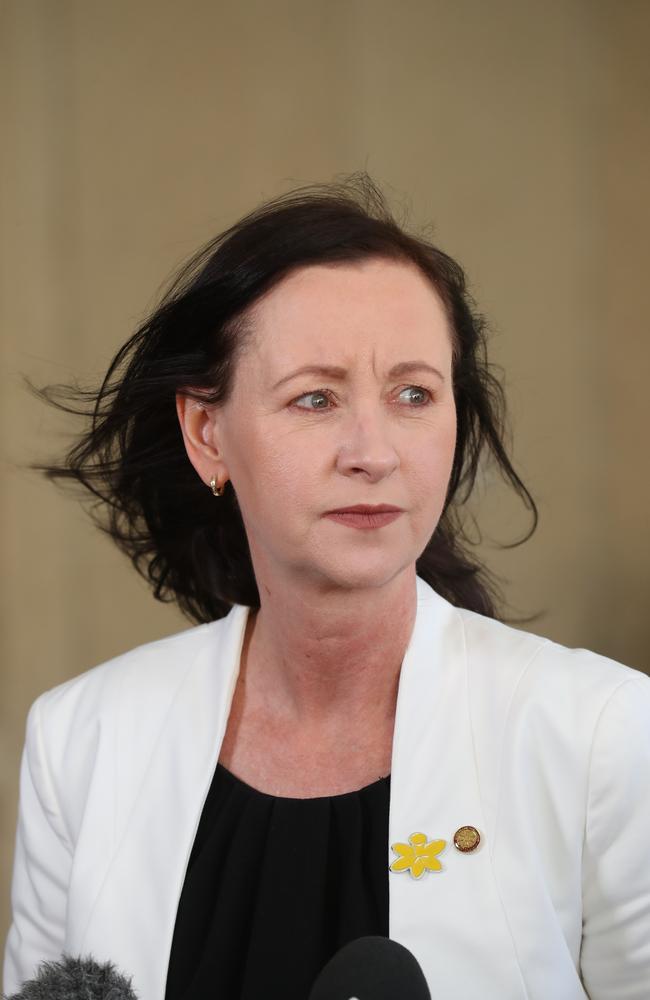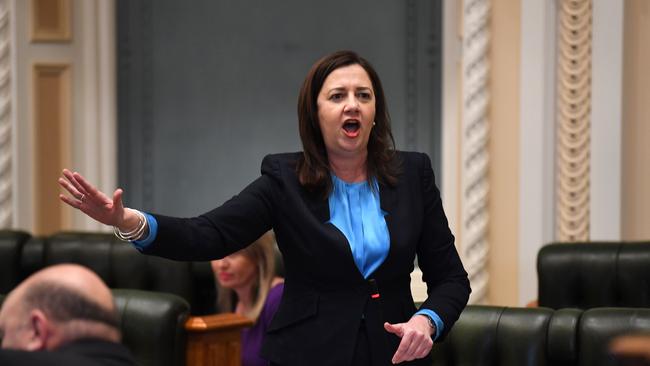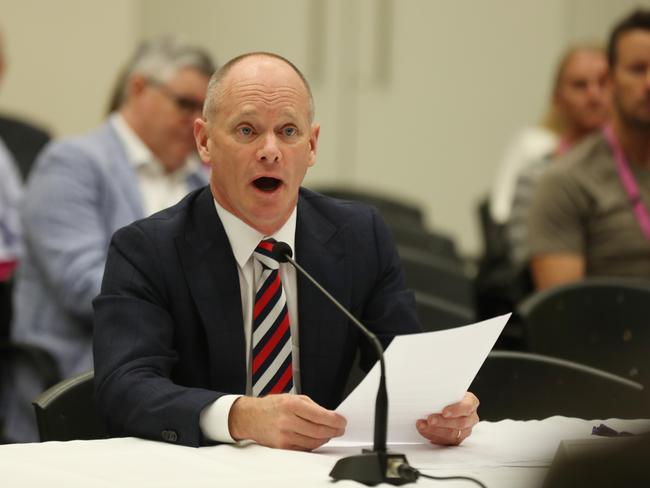New law will take Qld down a perilous path
Remember the date August 13, 2020. It is the day the Palaszczuk government hopelessly and unequivocally lost the plot and pushed ahead with a law so extreme even former premier Campbell Newman dumped it for being too harsh, writes The Editor.
Opinion
Don't miss out on the headlines from Opinion. Followed categories will be added to My News.
Mark down August 13, 2020 as the day the Palaszczuk government hopelessly and unequivocally lost the plot – the day this Labor administration pushed ahead with a law change so extreme that even former premier Campbell Newman dumped it for being too harsh.
The law change would make it a crime punishable by six months in jail to publicise corruption allegations against candidates during the official campaign periods. It would apply to both state and local government elections – effectively censoring what you are allowed to know before you vote.
Palaszczuk Government’s war on free speech
Peter Greste: Have we learnt nothing from Bjelke-Petersen era?
This cone of legislated silence will not only be drawn over traditional mainstream media such as newspapers, television and radio, but also social media channels, such as Facebook and Twitter.
And yet, in a demonstration of unbridled hubris, the bill introduced yesterday by Attorney-General Yvette D’Ath excludes candidates for political office from the ban – meaning MPs will still be allowed to write to constituents and raise corruption allegations about their opponents without recourse.

Yep. So brazen is this legislation that Premier Annastacia Palaszczuk has decided it is somehow in the public interest to redefine the legal definition of the word “publish” so MPs can still throw mud at their political foes, but everyone else would face jail if they tried it.
Minister D’Ath’s gormless explanation goes like this: “Queenslanders have the right to be fully and reliably informed in relation to relevant matters as they head to the polls – not distracted by publication of fanciful allegations and complaints.” But clearly, she and the rest of the head nodders in the Labor cabinet have no grip of the concept of free speech – and central to that key tenet of a democracy is the belief that the people should have the right to judge for themselves whether such allegations have merit.
This is seriously dangerous legislation – and another example of a tired government that has grown intolerant of scrutiny attempting to thwart the increasingly vital role that professional journalists play informing the public.
And what makes the whole affair even worse is that the government is blatantly abusing the limitation on Parliament caused by the coronavirus pandemic to push these laws through with limited scrutiny. It will be put through a rushed bipartisan committee investigation that won’t conduct a proper third-party submission process or public hearings. It will also not face a full sitting of Parliament when every MP can have their say.
Instead, the Bill will likely be put to a truncated vote at the next sitting week in early September – and passed. It is one abuse of power being compounded by another.

Now, Premier Palaszczuk might have convinced herself that she has political cover for this affront to free speech because it was again recommended recently by the Crime and Corruption Commission.
But while this proposal might suit the CCC and its extremely narrow remit, the Premier has a much greater responsibility when it comes to the impact of what laws are introduced in this state.
She herself knew this during the last election campaign in 2017 when she specifically ruled out introducing these laws because she feared it would prevent corruption from being exposed. She even invoked the Fitzgerald Commission at the time in her commentary – the state’s most revered inquiry into police and political corruption, which would never have happened if it weren’t for the efforts and courage of professional journalists.
The man who now leads Ms Palaszczuk’s communications team, Shane Doherty, was a journalist in 2016. He wrote in his submission to an inquiry then into the proposed laws: “To those who would impose more limits on what the media can and cannot say I would say ‘who the hell are you to decide? Who died and made you Kim Jong-un? Down this path is dictatorship’.”

Former LNP premier Campbell Newman was another leader who took a few steps down this same path – until he remembered the above point and stepped off it.
Mr Newman’s motivation was likely the torrent of allegations Labor made against him during the 2012 campaign. And yet the 2012 example actually demonstrates the system as it stands works.
The turning point in Labor’s failed campaign was when a journalist from this newspaper grilled premier Anna Bligh about the allegations against Mr Newman – and she could not adequately answer them. The final nail came when the CCC announced before polling day that Mr Newman had no case to answer. He went on to record the biggest victory in Australian political history – only to be turfed out three years later when the electorate decided they’d had enough of his hubris. Interesting.
